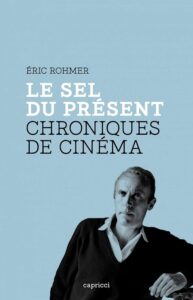Written in September 2009 for a Criterion’s DVD box set devoted to Roberto Rossellini’s War trilogy, released a few months later. — J.R.

Unlike the more aesthetically and intellectually conceived French New Wave, Italian neorealism was above all an ethical initiative — a way of saying that people were important, occasioned by a war that made many of them voiceless, faceless, and nameless victims. But this was, of course, a conviction that carried plenty of aesthetic and intellectual, as well as spiritual, consequences, including some that we’re still mulling over today.
Deliberately or not, Germany Year Zero concludes Roberto Rossellini’s War Trilogy by posing a kind of philosophical conundrum, a fact already signaled by its title, which he borrowed, with permission, from a book by French sociologist Edgar Morin. It was a title that stumped even Joseph Burstyn and Arthur Mayer, the American producers of Rome Open City and Paisan, and the fact that Rossellini, characteristically trusting his instincts, refused to say what he meant by it eventually encouraged them to back out of the project, which was largely financed by the French government. Read more
This is the first of all my Paris Journals for Film Comment, written for their Fall 1971 issue, and also the first piece I ever published in that magazine, when it was still a quarterly. This Journal is missing only its first section — a somewhat misinformed and misconstrued account of an ongoing feud at the time between Cahiers du Cinéma and Positif that I see little point in recycling now. (I’ve corrected a few errors here, but also left in a few others — such as the running time and title of OUT 1 — to preserve some period flavor.) I wound up writing this column for virtually every issue of the magazine, which soon afterwards became a bimonthly, for my remaining three years in Paris, then transformed it into a London Journal during my two and a half years in the U.K., and finally turned it into a column called “Moving” for a brief spell after I moved back to the United States in early 1977. (If memory serves, the last of the “Moving” columns became the prelude to my first book, Moving Places: A Life at the Movies, published by Harper & Row in 1980.) —J.R. Read more
Eric Rohmer died in early 2010 at the age of 89. (See Dave Kehr’s very fine obituary in the New York Times.) Although my support for his work was often guarded, I hope that I did justice to his importance in this August 20, 1999 piece for the Chicago Reader.

I was distressed more recently to read A.O. Scott assert about Rohmer, in an article about him in the New York Times, that “some aspects of late-20th-century life -– most notably, politics –- were absent from his palette”. This immediately made me think about L’arbre, le maire et la médiathèque(1993), one of Rohmer’s best and most neglected features, although, as Kent Jones subsequently noted on Dave Kehr’s blog, other Rohmer films with (direct or indirect) political content could also be noted. As usual, it appears that Scott is doing what many readers want from the Times‘ film writers: to assure them that their ignorance about certain matters is an “educated” ignorance, even if it isn’t. –J.R. [1/13/10] P.S. While I was in Paris early this month, I bought a hefty but relatively inexpensive new paperback, Le sel du present: Chroniques de cinema, collecting almost 200 of Rohmer’s reviews for the weekly Arts between 1948 and 1959. Read more


